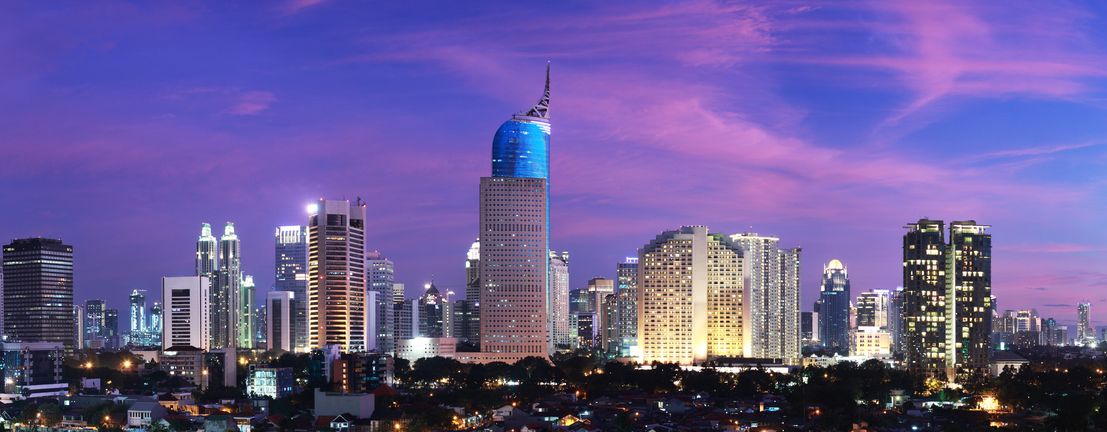What is Negative Investment List? Government of Indonesia issued decrees establishing a new list of sectors of investment that were either wholly or partially closed to private foreign and/or domestic investors.
Indonesia government through the Investment Coordinating Board (BKPM) will soon to announce the revision of the New Investment List (Daftar Negatif Investasi/DNI). Where in 2010, 40 business sectors are more open for investors, while some are closed for investment, such as Alcoholic Beverage Industry, Fisheries, Telecommunications Towers, Chemical Materials, Culture and Tourism, such as Casinos.
In 2013 revision (in progress) which to be issued in 2014, there would be 9 business sectors in which are planned to be more open, including: the management and operation of ports, airports, land terminals and drydocks, pharmaceutical industry, and eco-tourism industry.
The revised list will be grouped in 5 (five) categories. First, business sectors which will be more open for foreign investment; Second, business sectors which will be more restricted for foreign investment; Third, business sectors that adopt the harmonization of the simplification of the foreign capital ownership; Fourth, business sectors which have relationship with the public private partnership (PPP); and Fifth, business sectors which have to be inline with the prevailing laws and regulations.
The 1st group includes of 4 (four) sectors, such as (a) transportation industry, such as allowing foreign capital investment at the maximum of 49% for the land transport terminal development carrying out for the public elements, construction of public facilities for general cargo terminal, and conducting periodic visitation of motor vehicles; (b) pharmaceutical industry by increasing foreign capital ownership from 75% to 85%; (c) tourism and creative economy, particularly on the advertising industry and in relation to the ASEAN harmonization whereby foreign investor may hold maximum of 51%; and (d) financial industry, among other will increase the foreign investor ownership of venture capital industry to 85%.
The 2nd group includes the trade services sector such as distributorship, warehousing and cold storage for Sumatra, Java, and Bali provinces to be limited at the maximum of 33% of foreign ownership while cold storage for Kalimantan, Sulawesi, Nusa Tenggara (West and East), Moluccas, and Papua/Papuan Provinces to be limited at the maximum of 67% of foreign ownership.
The 3rd group includes of the informatics and communication sector whereby the foreign ownership for the fixed line communication network and fixed line communication integrated with multimedia service to be limited at the maximum of 65% and the multimedia service itself to be limited at the maximum of 49%.
The 4th group includes of such as (a) sea transportation industry, such as ports including dock, building, terminal and/or container ships in which during the concession period, foreign investors may hold at the maximum of 95% for PPP and 49% for non-PPP; (b) air transportation industry, i.e. airport of the maximum of 49% foreign ownership for PPPor non-PPP; (c) public sectors industry involving of drinking water and toll road sectors both allowing foreign investors to hold at the maximum of 95% for PPP or non-PPP; (d) energy and mineral resources sectors specifically on the power industry whereby for the transmission and distribution of the power supply, during the concession period, allowing foreign investors to hold 100% for PPP and maximum of 95% for non-PPP, power plant with small scale of 1-10 MW limits the foreign investment at the maximum of 49% for PPP as well as non-PPP, and for power plant above 10MW scale 100% for PPP and 95% for non-PPP/KPS maximum ownership for foreign investors. The Indonesian government provides for the licensing management to involve the foreign party but the ownership remains to the Indonesian government.
The last group, including such as the (a) agricultural sector to be in accordance with the prevailing Horticulture Act among other restricted the foreign ownership from previously 95% to 30% on the horticulture germination, cultivation, processing, researching and laboratory quality test, as well as horticulture agro-tour management and horticulture business service; and (b) commodity future trading sector to be in accordance with the Regulation of the Head of Bappebti (commodity future trading supervisory board) stipulating among other the alternative commodity future trading is open for 100% domestic ownership and future trading broker is open with the maximum of 95% foreign ownership.
Source: BKPM, KADIN, Jakarta Post, Kompas Daily.
